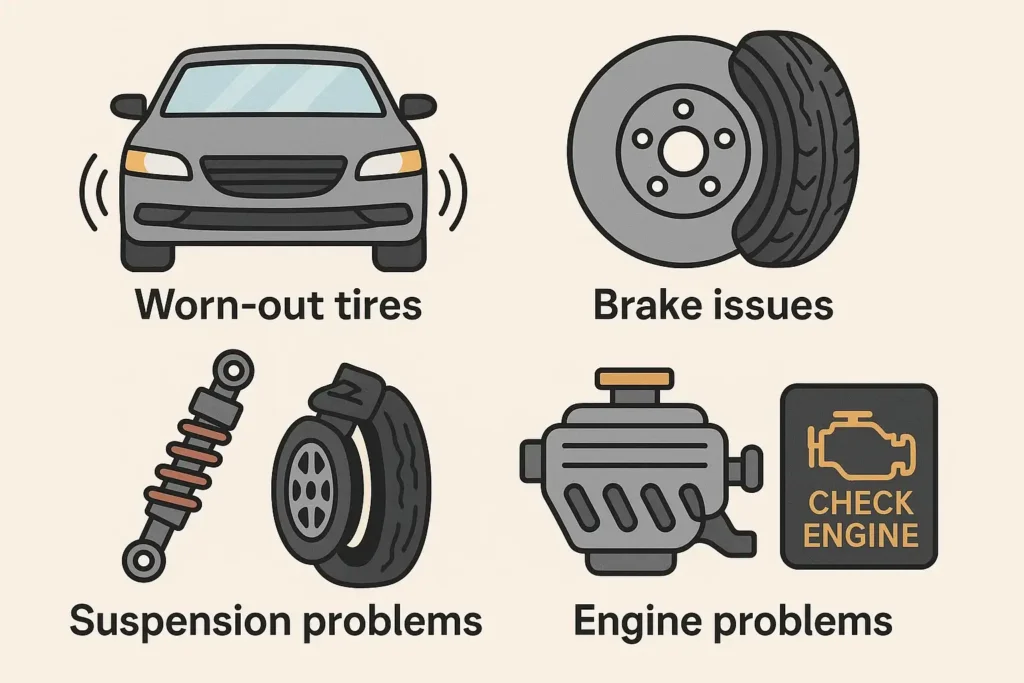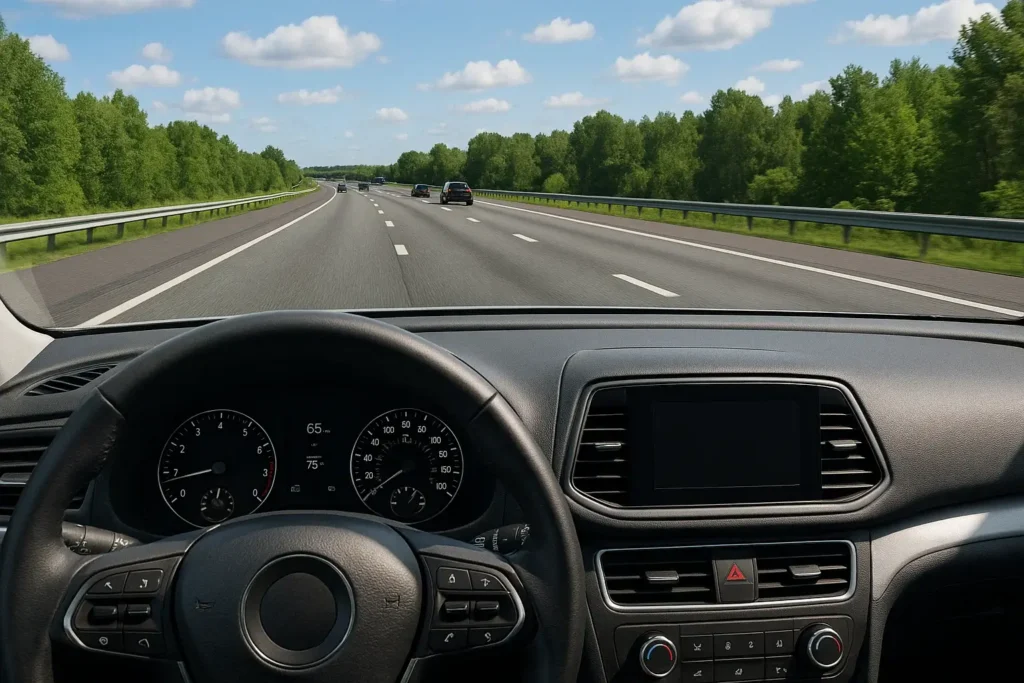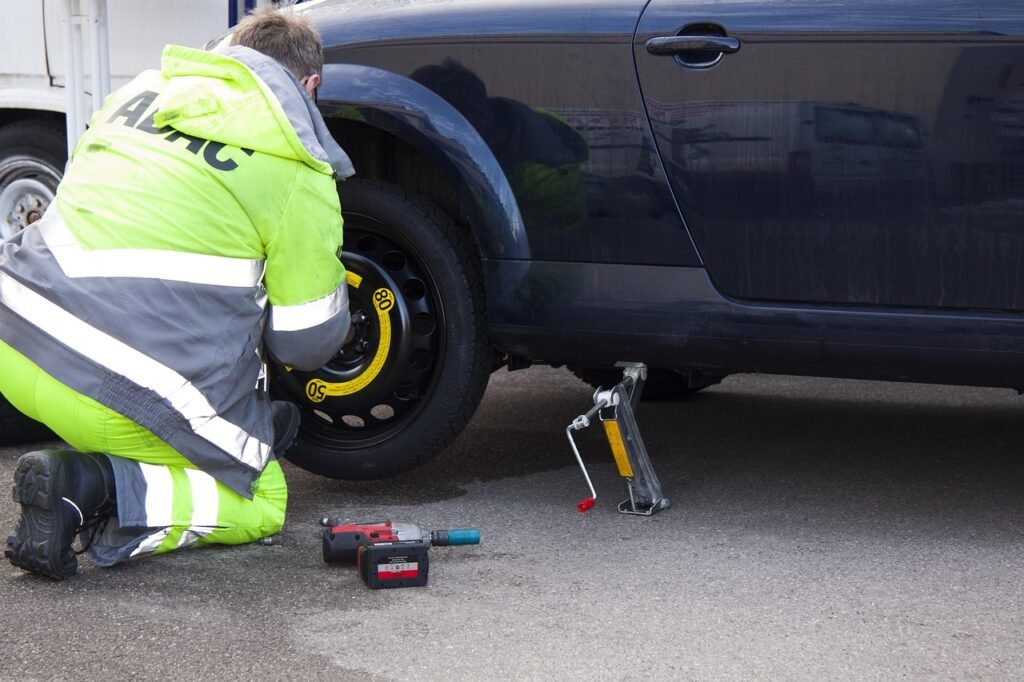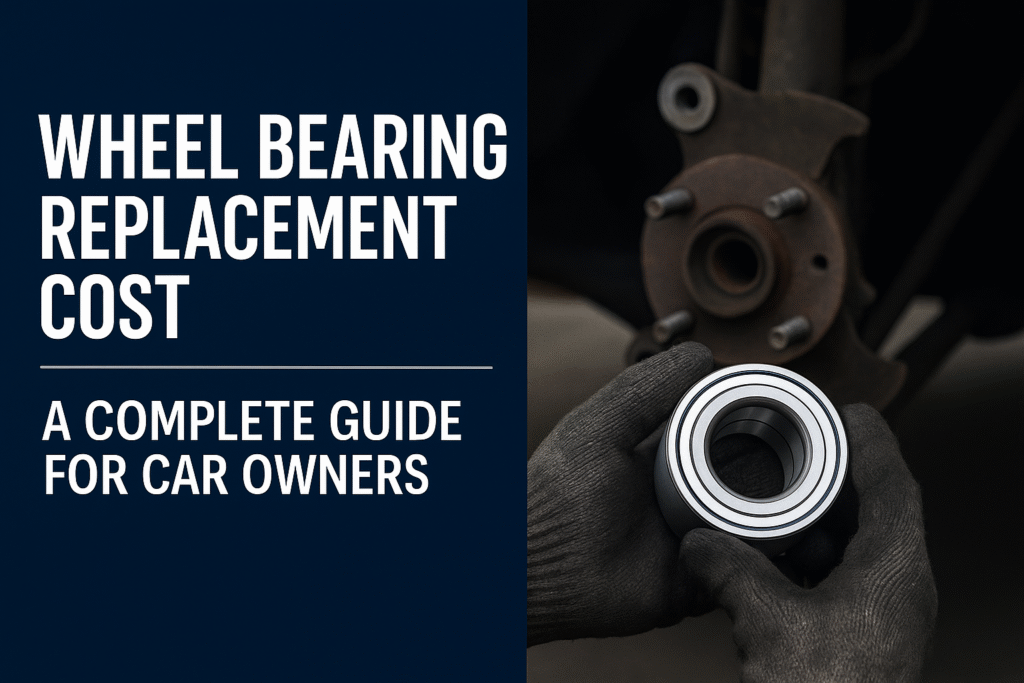Have you ever been cruising down the highway when suddenly your car starts shaking or vibrating unexpectedly? That unsettling feeling isn’t just uncomfortable it could also be a sign that something’s wrong with your vehicle. From minor maintenance issues to serious mechanical problems, there are many potential reasons why your car is shaking.
In this post, we’ll explore the most common causes of car vibration, how to spot the symptoms, when to see a mechanic, and what you can do to prevent it in the future. If you’ve found yourself asking, “Why is my car shaking?”, read on this guide is for you.
What Does It Mean When Your Car Is Shaking?
When your vehicle shakes or vibrates, it usually means there’s an imbalance or malfunction somewhere in the system. This could be related to the tires, suspension, brakes, or even the engine. The shaking may happen when you’re accelerating, braking, idling, or reaching certain speeds.
Ignoring the signs can lead to more severe issues down the line, including poor handling, reduced fuel efficiency, and costly repairs. Understanding the root cause is the first step to restoring a smooth ride.
Common Causes of Car Shaking
Let’s dive into the most frequent reasons your car might be shaking, starting with the simplest and most common.
1. Uneven Tire Wear
If your tires are worn out or wearing unevenly, it can cause noticeable shaking especially at higher speeds. Common culprits include:
- Improper tire inflation
- Unbalanced tires
- Misalignment
Rotating and balancing your tires regularly can help prevent this issue.
2. Wheel Alignment Issues
If your car pulls to one side or your steering wheel feels off-center, wheel misalignment could be to blame. Misaligned wheels cause your car to shake, particularly when driving straight or turning.
Causes of misalignment:
- Hitting potholes or curbs
- Suspension wear
- Poor road conditions
3. Engine Problems
Sometimes the shaking comes from under the hood. Engine-related causes may include:
- Worn spark plugs causing misfiring
- Dirty fuel injectors affecting combustion
- Damaged engine mounts failing to dampen engine vibration
If the shaking intensifies during acceleration or idling, engine trouble could be the cause.
4. Brake Issues
Does your car shake when you press the brake pedal? That’s a red flag for brake-related problems, such as:
- Warped brake rotors
- Sticking calipers
- Worn brake pads
Brake problems are safety concerns and should be addressed immediately.
5. Suspension Problems
Your suspension system is designed to absorb bumps and keep your ride stable. If parts like shocks, struts, or bushings are worn out, the car may shake even on smooth roads.
Look out for:
- Clunking sounds when going over bumps
- Vehicle sagging on one side
- Poor handling or bouncing

Symptoms to Look Out For
Recognizing the symptoms early can save you time, money, and stress. Here’s what to watch for:
Vibrations at Different Speeds
- Low-speed shaking might be tire or wheel-related.
- High-speed vibration is often due to tire imbalance or suspension issues.
- Shaking when accelerating could point to engine or transmission problems.
Unusual Noises
- Clicking, humming, or grinding sounds may accompany vibration and help diagnose the cause.
- Brake noise with shaking almost always indicates worn or warped components.
Changes in Handling
- Loose or “floaty” steering
- Car pulling to one side
- Increased difficulty maintaining control
If your car feels different to drive, don’t ignore it.
When to Seek Professional Help
Not all shaking requires immediate attention but some does. Here’s when to see a mechanic:
Red Flags
- Sudden or severe vibration
- Shaking during braking
- Loud noises with vibration
- Handling problems or loss of control
Finding the Right Mechanic
- Look for ASE-certified professionals.
- Read customer reviews and get multiple estimates.
- Ask for a diagnostic inspection to pinpoint the cause.
Getting a timely check-up can prevent small issues from turning into major repairs.
Preventative Measures
Want to avoid that unsettling shake altogether? Here are some maintenance tips to keep your car running smoothly:
Regular Maintenance
- Follow your vehicle’s maintenance schedule.
- Change oil, filters, and fluids as recommended.
Tire Rotation and Balancing
- Rotate tires every 5,000–7,000 miles.
- Balance and align wheels annually or as needed.
Suspension and Brake Checks
- Have your suspension inspected during regular service.
- Replace brake components before they wear out completely.
Routine care helps catch problems early and keeps your car performing at its best.
Conclusion
If you’ve been wondering, “Why is my car shaking?”, now you know the possible causes from uneven tires to engine trouble. Don’t ignore the warning signs. Identifying and fixing the problem early not only keeps you safe but can also save you from costly repairs down the road.
Whether it’s a simple tire rotation or something more serious, staying informed and proactive is the best way to maintain a smooth, safe, and reliable ride.
FAQs
Why is my car shaking when I drive?
General shaking while driving is usually caused by tire issues like unbalanced wheels, worn-out tires, or alignment problems. Suspension or brake problems can also sneak in, especially if the shaking is constant.
Why is my car shaking when I brake?
This typically means something’s up with your brake rotors. Warped rotors or stuck calipers are common culprits. You’ll feel the vibration mostly through the brake pedal or steering wheel.
Why is my car shaking when I turn it on?
Shaking at startup can be a sign of engine trouble. Dirty fuel injectors, a misfiring engine, or loose engine mounts are often to blame. If the shaking goes away after a few seconds, it’s still worth checking out.
Why is my car shaking when I stop?
If your car trembles at a stoplight or while idling, it might be an engine or transmission issue. Worn motor mounts or a clogged air filter could be causing it. You might also feel it more when the A/C is on.



